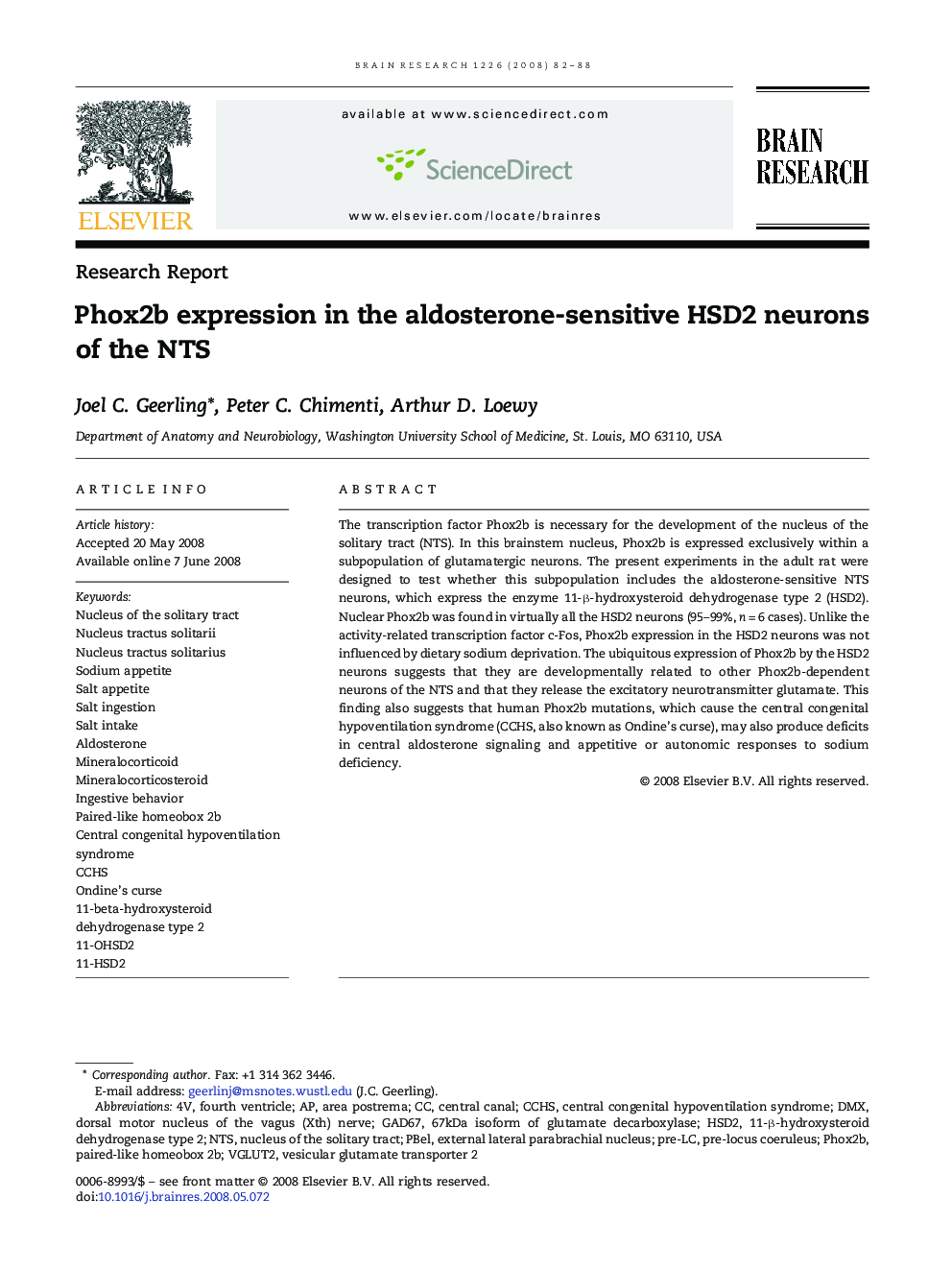| Article ID | Journal | Published Year | Pages | File Type |
|---|---|---|---|---|
| 4329393 | Brain Research | 2008 | 7 Pages |
Abstract
The transcription factor Phox2b is necessary for the development of the nucleus of the solitary tract (NTS). In this brainstem nucleus, Phox2b is expressed exclusively within a subpopulation of glutamatergic neurons. The present experiments in the adult rat were designed to test whether this subpopulation includes the aldosterone-sensitive NTS neurons, which express the enzyme 11-β-hydroxysteroid dehydrogenase type 2 (HSD2). Nuclear Phox2b was found in virtually all the HSD2 neurons (95-99%, n = 6 cases). Unlike the activity-related transcription factor c-Fos, Phox2b expression in the HSD2 neurons was not influenced by dietary sodium deprivation. The ubiquitous expression of Phox2b by the HSD2 neurons suggests that they are developmentally related to other Phox2b-dependent neurons of the NTS and that they release the excitatory neurotransmitter glutamate. This finding also suggests that human Phox2b mutations, which cause the central congenital hypoventilation syndrome (CCHS, also known as Ondine's curse), may also produce deficits in central aldosterone signaling and appetitive or autonomic responses to sodium deficiency.
Keywords
Gad67paired-like homeobox 2BDMXHSD2PBelSalt ingestionmineralocorticoidPHOX2BCCHSPre-locus coeruleusVGLUT2NTSaldosteroneSalt appetitesodium appetitefourth ventriclevesicular glutamate transporter 2Ingestive behaviorarea postremaOndine's curseSalt intakenucleus tractus solitariusNucleus tractus solitariinucleus of the solitary tractExternal lateral parabrachial nucleuscentral canal
Related Topics
Life Sciences
Neuroscience
Neuroscience (General)
Authors
Joel C. Geerling, Peter C. Chimenti, Arthur D. Loewy,
